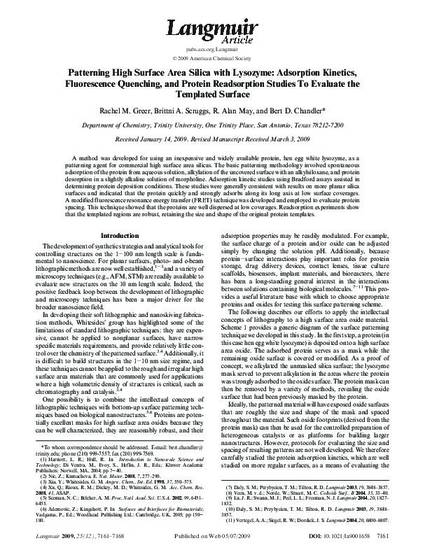
A method was developed for using an inexpensive and widely available protein, hen egg white lysozyme, as a patterning agent for commercial high surface area silicas. The basic patterning methodology involved spontaneous adsorption of the protein from aqueous solution, alkylation of the uncovered surface with an alkylsiloxane, and protein desorption in a slightly alkaline solution of morpholine. Adsorption kinetic studies using Bradford assays assisted in determining protein deposition conditions. These studies were generally consistent with results on more planar silica surfaces and indicated that the protein quickly and strongly adsorbs along its long axis at low surface coverages. A modified fluorescence resonance energy transfer (FRET) technique was developed and employed to evaluate protein spacing. This technique showed that the proteins are well dispersed at low coverages. Readsorption experiments show that the templated regions are robust, retaining the size and shape of the original protein templates.
